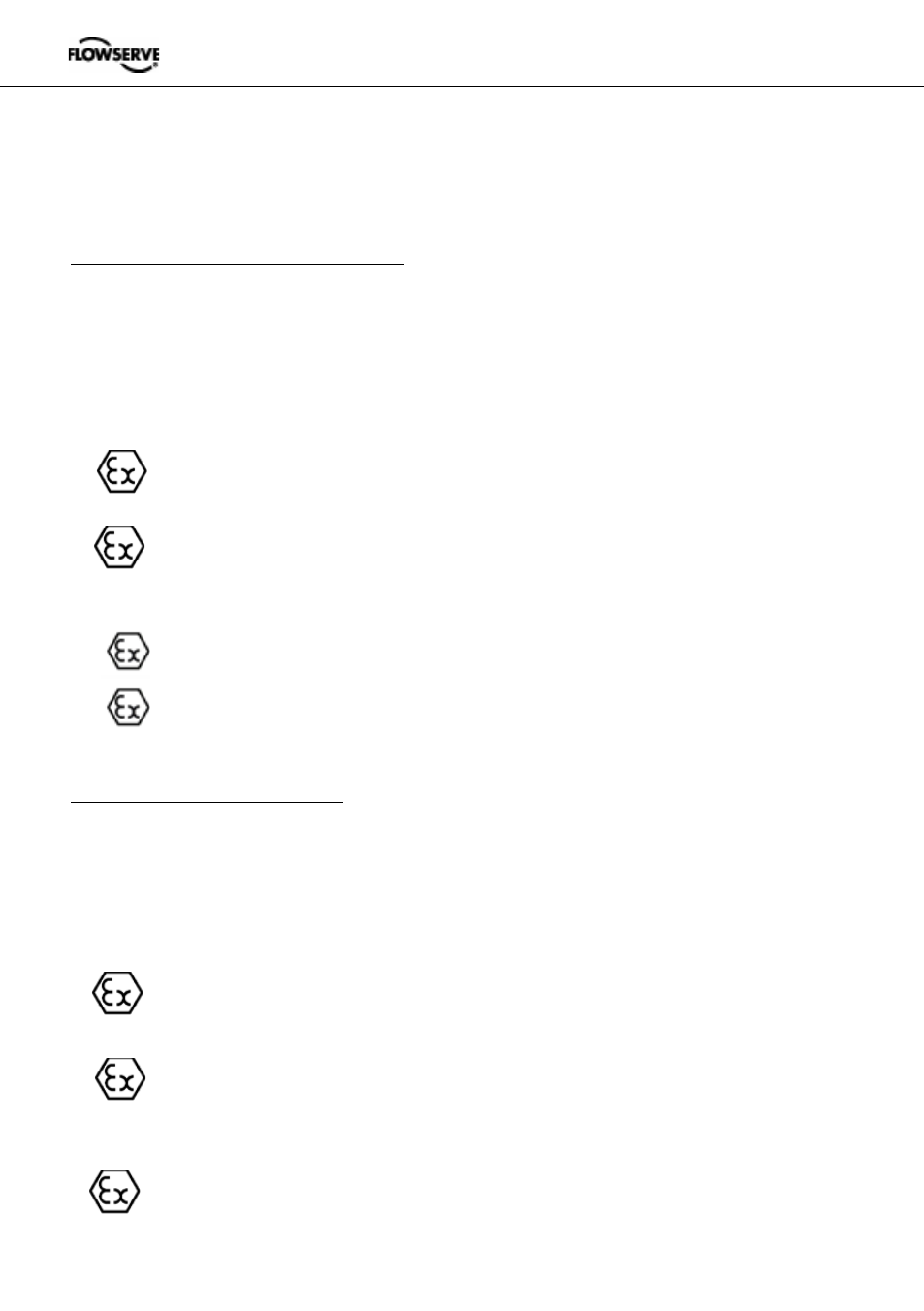Flowserve 955 Chemiepac User Manual
Page 8

6.6 Should there be gas or air pockets in the sealing chamber, these can accumulate with
the rotation at the outer diameter of the seal gap at machine start-up. As a conse-
quence the machine runs dry at the seal gap for an undefined period and damage may
be caused to the seal faces.
7.0 CONNECTING THE FLUID SUPPLY
7.1 The MS is operated with a fluid supply system in accordance with the specifications
from the machine manufacturer. To carry off the heat generated by friction and to pre-
vent deposits in the area of the seal face, adequate liquid circulation must be ensured,
e.g. feed from the discharge branch of the pump. The inlet of the circulation pipe (min.
1/4“) in the seal cover must be in the area of the seal gap. The seal gap is supplied
with clean, solids-free fluid only.
Escaping leakage must not form an explosive mixture.
Forced ventilation must be ensured in the sealing chamber when the circulati-
on line is connected. Should there be gas or air pockets in the sealing cham-
ber, these can accumulate with the rotation at the outer diameter of the seal
gap at machine start-up. As a consequence the machine runs dry at the seal
gap for an undefined period and damage may be caused to the seal faces.
Monitoring the liquid circulation is a recommended measure for ensuring that
the MS operates properly.
Suitable measures must be implemented to prevent errors in the operation of
shut-off and throttling devices installed in the fluid supply.
8.0 STARTING UP, OPERATION
The MS is ready for operation after it has been installed, the fluid supply connected,
and the sealing chamber carefully vented.
The Chemiepac 955-958 must not be operated with normal water. The addition
of a wetting agent is recommended. Please wait for at least twenty minutes
before starting up the seal.
It must be ensured that the machine is protected against penetration by dust
and / or that dust deposits are removed at regular intervals so that they cannot
exceed a thickness of 5 mm on the surfaces of the faces.
It must be ensured, e.g. in the form of a level monitor, that the sealing cham-
ber is completely vented and filled with liquid in all operating states if it is to
minimise the heat generated by friction and therefore the surface temperature
of the seal elements.
If the application limits for operations in accordance with these instructions
cannot be observed, the temperature of the supply fluid and / or the installed
-8-
!